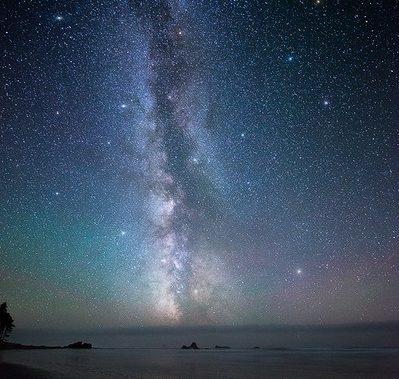Project Description
Pacific Passages
A Language of Stars
For Lapham’s Quarterly
In 1896 the deposed Queen Lili’uokalani of the former kingdom of Hawaii sat imprisoned in an upstairs bedroom of ‘Iolani Palace in Honolulu. The monarchy had been overthrown, and the American businessman Sanford Dole ruled as self-appointed president of the new republic.
While under house arrest, Lili’uokalani labored intently, urgently, over an English translation of the Hawaiian creation chant called the Kumulipo. An epic more than two thousand lines long that had been recited as a prayer at the birth of her great-great-grandfather nearly two centuries earlier, some seventy-five years prior to European contact, the Kumulipo was a cosmogonic genealogy that traced Lili’uokalani’s ancestral lineage back to the stars.
Hawaiians and others of the Pacific Islander diaspora were advanced astronomers. It was their knowledge of the heavens that enabled them to navigate among and inhabit the hundreds of tiny islands flung across the largest stretch of ocean on the planet, some ten million square miles wide. The Kumulipo gives a narrative frame to this knowledge, beginning with a description of the source of celestial beings:
Came men with great bundles
Which were tied together and hung up in the night of Makali’i [the Pleiades].
The stars secured were hung in space.
The chant then offers the names of nearly a hundred stars, planets, and constellations. Most of these names Lili’uokalani could not translate, not knowing the English counterparts for the heavenly bodies or the patterns they made in the sky that were called by her people such things as Kaoluokauka (“accumulation of little things”), Ihumoa (“chicken nose”), Hooleia (“thrown away”), Welo (“trailing”), or Kaalolo (“heap of brains”).
Because the Pacific Islanders did not have written languages, very little about their lives was immediately apparent to European explorers, who had, from first contact in the eighteenth century, mostly observed the islanders at a distance, reporting in their logs that they were dark-skinned, naked people who spoke in strange languages. They recorded that the natives had ships, which they operated without any visible instruments, navigating instead with unknown technology, as if by some kind of mind force; they insisted that the people of the Pacific were primitives who used only the most basic tools. In these logs the islanders’ histories, cultures, and scientific knowledge were muted, overlaid with the narratives of the colonizers. Lili’uokalani’s translation was an attempt to save what she could of the oral culture of Hawaiians that carried within it their celestial knowledge—in danger, by the nineteenth century, of being forgotten entirely.
